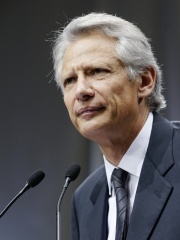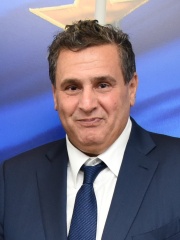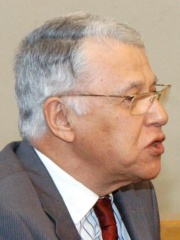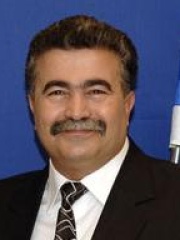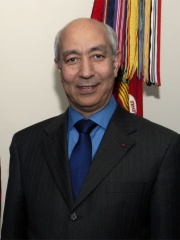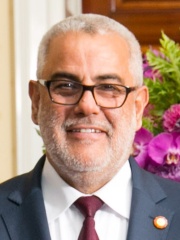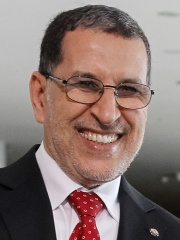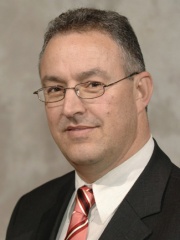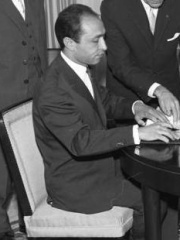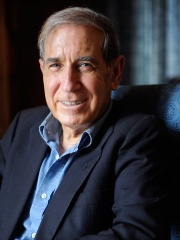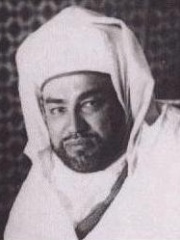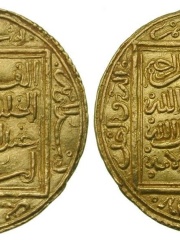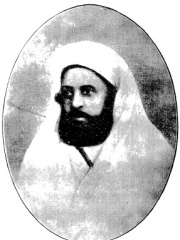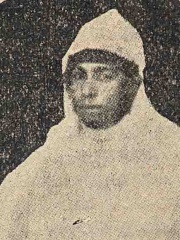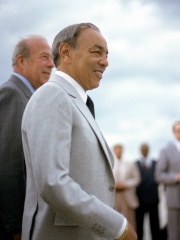
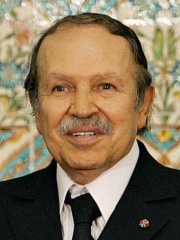
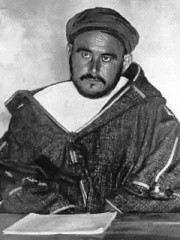
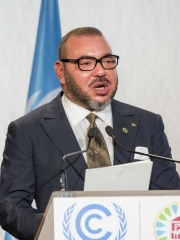
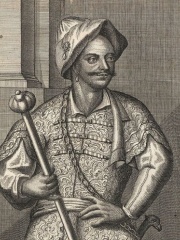
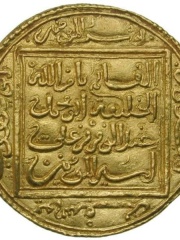
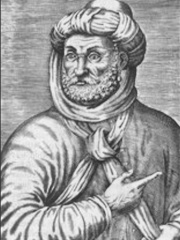
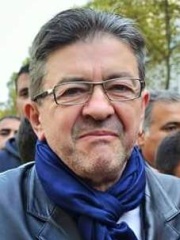
The Most Famous
POLITICIANS from Morocco
This page contains a list of the greatest Moroccan Politicians. The pantheon dataset contains 19,576 Politicians, 63 of which were born in Morocco. This makes Morocco the birth place of the 52nd most number of Politicians behind Belarus, and Thailand.
Top 10
The following people are considered by Pantheon to be the top 10 most legendary Moroccan Politicians of all time. This list of famous Moroccan Politicians is sorted by HPI (Historical Popularity Index), a metric that aggregates information on a biography's online popularity. Visit the rankings page to view the entire list of Moroccan Politicians.

1. Hassan II of Morocco (1929 - 1999)
With an HPI of 77.24, Hassan II of Morocco is the most famous Moroccan Politician. His biography has been translated into 66 different languages on wikipedia.
Hassan II (Arabic: الحسن الثاني, romanized: al-Ḥasan aṯ-ṯhānī; 9 July 1929 – 23 July 1999) was King of Morocco from 1961 until his death in 1999. A member of the Alawi dynasty, he was the eldest son of King Mohammed V, and his second wife Princess Abla bint Tahar. He was named crown prince in 1957 and was the first commander-in-chief of the Royal Armed Forces. He was enthroned as king in 1961 following his father's death. His reign was marked by the start of the Western Sahara conflict and the Sand War, as well as two failed coup attempts against him in 1971 and in 1972. Hassan's conservative approach reportedly strengthened his rule over Morocco and the Western Sahara. He was accused of authoritarian practices, as well as human rights and civil rights abuses, particularly during the Years of Lead. A truth commission was set up after his death to investigate allegations of human rights violations during his reign.

2. Abdelaziz Bouteflika (1937 - 2021)
With an HPI of 75.61, Abdelaziz Bouteflika is the 2nd most famous Moroccan Politician. His biography has been translated into 91 different languages.
Abdelaziz Bouteflika (; Arabic: عَبد الْعَزِيْز بُوتَفْلِيْقَة, romanized: ʿAbd al-ʿAzīz Būtaflīqa [ʕabd elʕaziːz buːtefliːqa]; 2 March 1937 – 17 September 2021) was an Algerian politician and diplomat who served as the seventh president of Algeria from 1999 to his resignation in 2019. Before his stint as an Algerian politician, Bouteflika served during the Algerian War as a member of the National Liberation Front. After Algeria gained its independence from France, he served as the Minister of Foreign Affairs between 1963 until 1979. He served as President of the United Nations General Assembly during the 1974–1975 session. In 1983 he was convicted of stealing millions of dinars from Algerian embassies during his diplomatic career. In 1999, Bouteflika was elected president of Algeria in a landslide victory. He would win re-elections in 2004, 2009, and 2014. As President, he presided over the end of the Algerian Civil War in 2002 when he took over the project of his immediate predecessor President Liamine Zéroual, and he ended emergency rule in February 2011 amidst regional unrest. Following a stroke in 2013, Bouteflika had made few public appearances throughout his fourth term, making his final appearance in 2017. Bouteflika resigned on 2 April 2019 amid months of mass protests opposing his candidacy for a fifth term. With nearly 20 years in power, he is the longest-serving head of state of Algeria to date. Following his resignation, Bouteflika became a recluse and died at the age of 84 in 2021, over two years after his resignation.

3. Abd el-Krim (1882 - 1963)
With an HPI of 74.67, Abd el-Krim is the 3rd most famous Moroccan Politician. His biography has been translated into 58 different languages.
Muḥammad bin ‘Abd al-Karīm al-Khaṭṭābī, better known as Abd el-Krim (Arabic: عبد الكريم; 12 January 1882 – 6 February 1963), was a Moroccan political and military leader and the president of the Republic of the Rif. He and his brother M'Hammad led a large-scale revolt by a coalition of Riffian tribes against the Spanish and French Protectorates of the Rif and the rest of Morocco. His guerrilla tactics, which included the first-ever use of tunneling as a technique of modern warfare, directly influenced Ho Chi Minh, Mao Zedong and Che Guevara. He also became one of the major figures of Arab nationalism, which he actively supported.

4. Mohammed VI of Morocco (b. 1963)
With an HPI of 74.29, Mohammed VI of Morocco is the 4th most famous Moroccan Politician. His biography has been translated into 91 different languages.
Mohammed VI (Arabic: محمد السادس, romanized: Muḥammad as-sādis; born 21 August 1963) is King of Morocco. A member of the Alawi dynasty, he acceded to the throne on 23 July 1999, upon the death of his father, King Hassan II. Upon ascending to the throne, Mohammed initially introduced several reforms and changed the family code to grant more rights to women in Morocco. Leaked diplomatic cables from WikiLeaks in 2010 led to allegations of corruption in the court of Mohammed, implicating him and his closest advisors. In 2011, protests in Morocco that were considered part of the wider Arab Spring occurred against alleged government corruption. In response, Mohammed enacted several reforms and introduced a new constitution. These reforms were passed by public referendum on 1 July 2011. His other reforms have included modernising the economy and military force of Morocco, promoting non-sectarian Islam and Berber culture, including designating Standard Moroccan Amazigh as an official national language alongside Standard Arabic, and curtailing the influence of religious extremism. In foreign policy, Mohammed continued in the moderate tradition established by his father, who was held to be a moderating influence among Arab nations and in relations between the Arab world and the West. He strengthened Morocco's ties with key global players, including the United States, the European Union, and China, and prioritized relations with African countries and international recognition of Morocco's claim to the territory of Western Sahara. During his rule, Morocco became the sixth Arab League country to normalize ties with Israel under the Abraham Accords. Mohammed has vast business holdings across several economic sectors in Morocco. His net worth has been estimated at between US$2.1 billion and over US$5.2 billion. In 2015, Forbes named him the richest king in Africa and the fifth wealthiest monarch in the world. In 2019, he had a reported personal wealth of $8.2 billion.
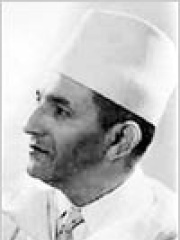
5. Mohammed V of Morocco (1909 - 1961)
With an HPI of 73.87, Mohammed V of Morocco is the 5th most famous Moroccan Politician. His biography has been translated into 48 different languages.
Mohammed al-Khamis bin Yusef bin Hassan al-Alawi, better known simply as Mohammed V (10 August 1909 – 26 February 1961), was the last Sultan of Morocco from 1927 to 1953 and from 1955 to 1957, and first King of Morocco from 1957 to 1961. A member of the 'Alawi dynasty, he played an instrumental role in securing the independence of Morocco from the French and Spanish Protectorates. Mohammed was enthroned as sultan upon the death of his father Yusef bin Hassan in 1927. Early in his reign, his approval of the Berber Dahir drew widespread backlash and spurred an upsurge of Moroccan nationalism and opposition to continued French rule. Initially more amenable to colonial authorities, Mohammed grew increasingly supportive of the nationalist movement later on. During World War II he supported the Allies, participated in the 1943 Anfa Conference and took steps to protect Moroccan Jews from Vichy persecution. Mohammed became a central figure of the independence cause after the war. In 1947, he delivered a historic speech in Tangier, in which he made an open appeal for Moroccan independence and emphasized the country's ties with the rest of the Arab world. His relationship with the French became increasingly strained afterwards as colonial rule grew more repressive. In 1953, French authorities deposed Mohammed, exiled him to Corsica (later transferring him to Madagascar) and installed his first cousin once removed Mohammed Ben Aarafa as sultan. The deposition sparked active opposition to the French protectorate and two years later, faced with rising violence in Morocco, the French government allowed Mohammed's return. In 1956, he successfully negotiated with France and Spain for Moroccan independence, and in the following year he assumed the title of king. Mohammed died in 1961 at the age of 51 and was succeeded by his eldest son, who took the throne as Hassan II.

6. Ismail Ibn Sharif (1646 - 1727)
With an HPI of 72.19, Ismail Ibn Sharif is the 6th most famous Moroccan Politician. His biography has been translated into 39 different languages.
Moulay Ismail Ibn Sharif (Arabic: أبو النَّصْرِ مولاي إسماعيل بن الشريف, romanized: Abu 'l-Naṣr Mawlāy Ismāʿīl ibn al-Sharīf, c. 1645 – 22 March 1727) was a Sultan of Morocco from 1672 to 1727, as the second ruler of the 'Alawi dynasty. He was the seventh son of Moulay Sharif and was governor of the province of Fez and the north of Morocco from 1667 until the death of his half-brother, Sultan Moulay Rashid in 1672. He was proclaimed sultan at Fez, but spent several years in conflict with his nephew Moulay Ahmed ben Mehrez, who also claimed the throne, until the latter's death in 1687. Moulay Ismail's 55-year reign is the longest of any sultan of Morocco. During his lifetime, Isma'il amassed a harem of over 500 women with more than 800 confirmed biological children, making him one of the most prodigious fathers in recorded history. The reign of Moulay Ismail marked a high watermark for Moroccan power. His military successes are explained by the creation of a strong army, originally relying on the 'Guichs' (especially the Udaya) and on the Black Guard (or Abid al-Bukhari), black slaves who were totally devoted to him. As a result, the central power could be less reliant on tribes that often rebelled. Moulay Ismail failed against the Ottoman Regency of Algiers during the Battle of Moulouya in 1692, as he tried to expand his territory towards Tlemcen. Moulay Ismail once again attempted to capture Oran, which was under Spanish rule, he had some success in pushing back the tribes of the Regency of Algiers until the Algerian Bey Mustapha cooperated with the Spaniards in pushing back Moulay Ismail's army. Moulay Ismail engaged in the Maghrebi War against the Regency of Algiers, he was successful in conquering the Western Beylik, he even looted the palace of the Bey. His army was subsequently pushed back in the Battle of Chelif in 1701. He participated in other minor battles such as Laghouat in 1708 which ended successfully. He expelled the Europeans from the ports they had occupied: Larache, Asilah, Mehdya, and Tangier. He took thousands of Christians prisoner and nearly took Ceuta. Ismail controlled a fleet of corsairs based at Salé-le-Vieux and Salé-le-Neuf (now Rabat), which supplied him with European Christian slaves and weapons through their raids in the Mediterranean and all the way to the Black Sea. He established significant diplomatic relations with foreign powers, especially the Kingdom of France, Great Britain, and Spain. Often compared to his contemporary, Louis XIV, due to his charisma and authority, Moulay Ismail was nicknamed the 'bloody king' by the Europeans due to his extreme cruelty and exaction of summary justice upon his Christian slaves. He is also known in his native country as the "Warrior King". He also made Meknes his capital and undertook the construction of an enormous citadel and palace complex next to its old city which included several grand residences, gardens, monumental gates, mosques, and more than forty kilometers of walls. He died following a sickness. After his death, his supporters became so powerful that they controlled the country, enthroning and dethroning the sultans at will.

7. Ibn Tumart (1097 - 1130)
With an HPI of 69.02, Ibn Tumart is the 7th most famous Moroccan Politician. His biography has been translated into 33 different languages.
Abū ʿAbd Allāh Muḥammad Ibn Tūmart (Arabic: أبو عبد الله محمد ابن تومرت, ca. 1080– August 1130) was a Muslim religious scholar, teacher and political leader, from the Sous in southern present-day Morocco. He founded and served as the spiritual and first military leader of the Almohad movement, a puritanical reform movement launched among the Masmuda Berbers of the Atlas Mountains. Ibn Tumart launched an open revolt against the ruling Almoravids during the 1120s. After his death his followers, the Almohads, went on to conquer much of North Africa and part of Spain. Although the Almohad movement itself was founded by Ibn Tumart, his disciple Abd al-Mu'min was the founder of the ruling dynasty.

8. Ahmad al-Mansur (1549 - 1603)
With an HPI of 68.91, Ahmad al-Mansur is the 8th most famous Moroccan Politician. His biography has been translated into 31 different languages.
Ahmad al-Mansur (Arabic: أبو العباس أحمد المنصور بالله, romanized: Abū l-ʿAbbās Aḥmad al-Manṣūr biʾllāh; 1549 – 25 August 1603), also known as al-Dhahabī (Arabic: الذهبي, lit. 'the Golden') was the Saadi Sultan of Morocco from 1578 to his death in 1603, the sixth and most famous of all rulers of the Saadis. Ahmad al-Mansur was an important figure in both Europe and Africa in the sixteenth century. His powerful army and strategic location made him an important power player in the late Renaissance period. He has been described as "a man of profound Islamic learning, a lover of books, calligraphy and mathematics, as well as a connoisseur of mystical texts and a lover of scholarly discussions."

9. Jean-Luc Mélenchon (b. 1951)
With an HPI of 68.15, Jean-Luc Mélenchon is the 9th most famous Moroccan Politician. His biography has been translated into 57 different languages.
Jean-Luc Antoine Pierre Mélenchon (French: [ʒɑ̃lyk melɑ̃ʃɔ̃] ; born 19 August 1951) is a French politician who has been the de facto leader of the movement La France Insoumise (LFI) since it was established in 2016. He was the deputy in the National Assembly for the 4th constituency of Bouches-du-Rhône from 2017 to 2022 and led the La France Insoumise group in the National Assembly from 2017 to 2021. Mélenchon was previously elected as a Member of the European Parliament (MEP) in 2009 and reelected in 2014. He has run for President of France three times, in 2012, 2017 and 2022. In 2022, he came within 1.2 percentage points of reaching the second round in France's two-round voting system. After joining the Socialist Party (PS) in 1976, Mélenchon was successively elected a municipal councillor of Massy (1983) and general councillor of Essonne (1985). In 1986, he entered the Senate, to which he was reelected in 1995 and 2004. He also served as Minister for Vocational Education between 2000 and 2002 under Minister of National Education Jack Lang in the cohabitation government of Lionel Jospin. He was part of the left-wing of the PS until the Reims Congress of November 2008, when he left the party to found the Left Party with Marc Dolez, a member of the National Assembly. Mélenchon first served as party president before becoming party co-president alongside Martine Billard, a position he held until 2014. As co-president of the Left Party, he joined the electoral coalition of the Left Front before the 2009 European Parliament election in France; he was elected as a MEP in the South-West France constituency and reelected in 2014. He became the Left Front's candidate in the 2012 French presidential election, in which he came in fourth, receiving 11.1% of the first-round vote. In February 2016, Mélenchon founded La France Insoumise. He stood as a candidate in the 2017 French presidential election, again coming in fourth, with 19.6% of the first-round vote. He became a member of the National Assembly for LFI following the 2017 French legislative election, receiving 59.9% in the second round in the 4th constituency of Bouches-du-Rhône, located in Marseille (France's second-largest city). Mélenchon stood again under the LFI banner in the 2022 French presidential election, coming in third with 21.95% of the vote, just over one point short of qualifying for the second round. After this, he led the newly formed New Ecological and Social People's Union (NUPES) alliance of parties to a second-place performance in the 2022 French legislative election. LFI was confirmed as the largest party of the French left in the 2024 French legislative election, where the left-wing New Popular Front (NFP) achieved a plurality of seats and LFI was confirmed as the largest left-wing group in the National Assembly.
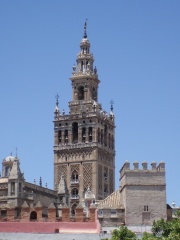
10. Abu Yusuf Yaqub al-Mansur (1160 - 1199)
With an HPI of 68.02, Abu Yusuf Yaqub al-Mansur is the 10th most famous Moroccan Politician. His biography has been translated into 33 different languages.
Abū Yūsuf Yaʿqūb ibn Yūsuf ibn Abd al-Muʾmin al-Manṣūr (Arabic: أبو يوسف يعقوب بن يوسف بن عبد المؤمن المنصور; d. 23 January 1199), commonly known as Yaqub al-Mansur (يعقوب المنصور) or Moulay Yacoub (مولاي يعقوب), was the third Almohad caliph. Succeeding his father, al-Mansur reigned from 1184 to 1199. His reign was distinguished by the flourishing of trade, architecture, philosophy and the sciences, as well as by victorious military campaigns in which he was successful in repelling the tide of the Reconquista in the Iberian Peninsula.
People
Pantheon has 62 people classified as Moroccan politicians born between 791 and 1978. Of these 62, 19 (30.65%) of them are still alive today. The most famous living Moroccan politicians include Mohammed VI of Morocco, Jean-Luc Mélenchon, and Dominique de Villepin. The most famous deceased Moroccan politicians include Hassan II of Morocco, Abdelaziz Bouteflika, and Abd el-Krim.
Living Moroccan Politicians
Go to all RankingsMohammed VI of Morocco
1963 - Present
HPI: 74.29
Jean-Luc Mélenchon
1951 - Present
HPI: 68.15
Dominique de Villepin
1953 - Present
HPI: 65.15
Aziz Akhannouch
1961 - Present
HPI: 65.03
Abbas El Fassi
1940 - Present
HPI: 63.41
Amir Peretz
1952 - Present
HPI: 62.85
Driss Jettou
1945 - Present
HPI: 62.32
Abdelilah Benkirane
1954 - Present
HPI: 60.68
Saadeddine Othmani
1956 - Present
HPI: 60.49
Ahmed Aboutaleb
1961 - Present
HPI: 60.34
Ahmed Osman
1930 - Present
HPI: 58.50
Shlomo Ben-Ami
1943 - Present
HPI: 58.35
Deceased Moroccan Politicians
Go to all RankingsHassan II of Morocco
1929 - 1999
HPI: 77.24
Abdelaziz Bouteflika
1937 - 2021
HPI: 75.61
Abd el-Krim
1882 - 1963
HPI: 74.67
Mohammed V of Morocco
1909 - 1961
HPI: 73.87
Ismail Ibn Sharif
1646 - 1727
HPI: 72.19
Ibn Tumart
1097 - 1130
HPI: 69.02
Ahmad al-Mansur
1549 - 1603
HPI: 68.91
Abu Yusuf Yaqub al-Mansur
1160 - 1199
HPI: 68.02
Yusef of Morocco
1882 - 1927
HPI: 67.89
Abu Yaqub Yusuf
1138 - 1184
HPI: 66.98
Hassan I of Morocco
1836 - 1894
HPI: 66.63
Abdelaziz of Morocco
1878 - 1943
HPI: 65.99
Overlapping Lives
Which Politicians were alive at the same time? This visualization shows the lifespans of the 25 most globally memorable Politicians since 1700.

